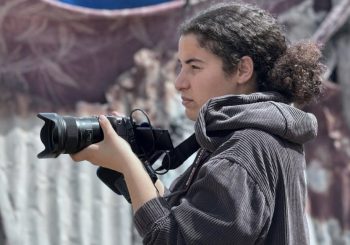Egypt has a rich tapestry of athletic achievements, from the fearless performances of our national football team to the record-breaking exploits of our Olympic heroes.
While the media landscape in Egypt has undoubtedly improved in recent years, with more attention being paid to the nation’s sports stars, the stories and accomplishments of many Egyptian athletes often remain obscured, overshadowed by relentless coverage of actors and actresses.
The challenge lies in ensuring that the coverage of Egyptian athletes is not just limited to major events and achievements, but extends to celebrating their day-to-day triumphs and the inspiring journeys that led them there.
Despite this, there is still room for further progress in highlighting the remarkable feats of Egyptian athletes.
A more balanced and comprehensive approach to sports coverage could help elevate the profile of these talented individuals, inspiring the next generation of sports heroes and fostering a deeper appreciation for the rich tapestry of Egyptian athletic prowess.
For example, the consistently impressive performances of the Egyptian national volleyball team have often been overshadowed by the more widely-followed sports like football. While the team has consistently ranked among the top teams in Africa and made multiple appearances at the Olympics, their stories have not received the same level of attention as their counterparts in other sports.
Additionally, take the case of Karam Gaber, the legendary Egyptian wrestler who won Olympic gold and multiple world championship medals. Despite his remarkable achievements, Gaber’s name and legacy have faded from the public consciousness in the years since his retirement. This oversight robs future generations of athletes of the inspiration and role models they deserve.

The Power of Storytelling
The solution lies in the power of storytelling.
By proactively promoting the stories of Egyptian athletes, both during and beyond their competitive careers, the media can ensure that their achievements are not forgotten and that they receive the recognition they rightfully deserve.
Sports federations can play a crucial role in this endeavor by providing the media with exclusive access, behind-the-scenes footage, and in-depth interviews that give audiences a deeper understanding of the athletes’ journeys and the challenges they face.
In turn, the media can amplify these stories, using their platforms to showcase the talents of Egyptian athletes, highlight their contributions to their respective sports, and celebrate their triumphs. This collaborative approach can have a transformative impact on the perception of Egyptian sports, both within the country and on the global stage.
The Importance of Sustained Coverage
One of the key challenges in the current media landscape is the tendency to focus on athletes only during major international tournaments, such as the Olympics. While these events are undoubtedly important, it is crucial to maintain a consistent and sustained coverage of Egyptian athletes throughout the year.
By ensuring that the stories of our sports heroes are told and retold, we can inspire a new generation of athletes to follow in their footsteps. We can also foster a deeper sense of national pride and unity, as Egyptians rally behind their champions and celebrate their achievements.
As we look to the future, it is time for Egypt’s media outlets to recognize the vital role they play in shaping the narrative around our nation’s sports heroes. By working in tandem with sports federations, they can create a powerful platform that elevates the profiles of Egyptian athletes and showcases their remarkable journeys to the world.
The opinions and ideas expressed in this article are the author’s and do not necessarily reflect the views of Egyptian Streets’ editorial team.
To submit an opinion article, please email [email protected].





Comments (0)